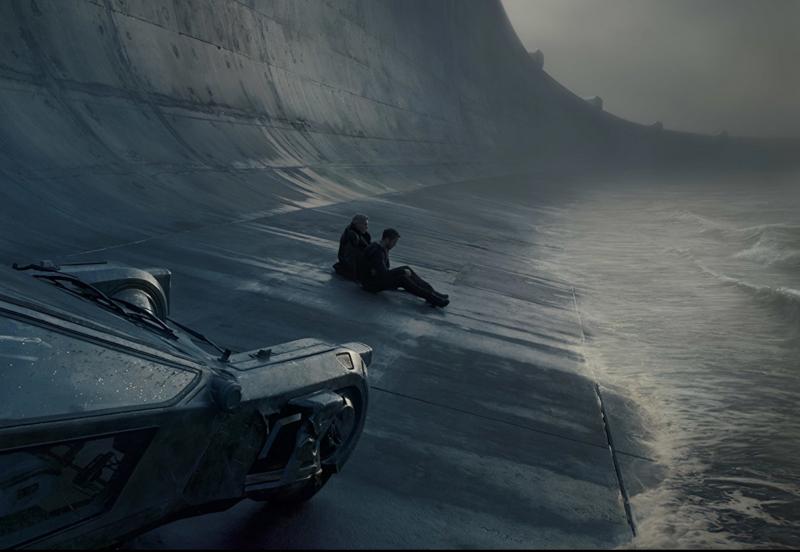The original 1982 masterpiece (yes, that is not a word used lightly, but it is apt in this case) redefined the science-fiction industry in multiple ways. It remains as remarkable and stunning today as it was more than 30 years ago, which is no small feat for the genre (seriously, try to go back and rewatch "The Terminator" or "Tron" without wincing a bit).
So when it was announced that there was work on a sequel, there was cause for much concern. Additional agita set in when the original film's director, Ridley Scott, was said to be not returning (though after watching what he did to his "Alien" franchise with the atrocious "Alien: Covenant" earlier this year, I admit I was relieved he was relegated to only producer credit). Instead, directing credit went to Denis Villeneuve, someone who has shown flashes of style in films like "Prisoners" and "Arrival," but has never released a consistently narratively solid film.
But within minutes, all that angst melted. As with last year's "Mad Max: Fury Road," it turns out there is still juice in the engine of this vehicle. And Villeneuve does not look to redefine the genre like his predecessor did inasmuch as he expands its universe in the best possible ways. It's both visually sumptuous and intellectually stimulating, musing on the philosophical matters that were invoked in the original.
Set 30 years later, "Blade Runner 2049" picks up after a series of violent rebellions from the original Nexus replicants created by the Tyrell Corporation. Facing financial ruin, the business is bought out by a reclusive scientist named Niander with a god complex (played by an annoying, but thankfully brief Jared Leto). Niander rewires his replicants to be even more obedient and glitch-free.
There are still a few remaining Tyrell models roaming about, which means there is still a need for blade runners, which also means agent K (played by Ryan Gosling) has a job to do. This particular assignment leads him to a remote location that takes him down a wormhole that connects K with a burgeoning replicant resistance and even an exiled blade runner by the name of Deckard (reprised by Harrison Ford, giving one of his finest performances in his latter-day career resurgence).
There is much to absorb in this sequel, and the less you know going in, the better, letting the world unfold as it progresses. At 164 minutes, there's certainly plenty of time to do so, but that runtime also allows the more meditative aspects of the film to sink in. Screenwriters Hampton Fancher (who adapted the original from Philip K. Dick's novel) and Michael Green logically broaden a world that never actually called for it, but their treatment adds layers of narrative complexity and manages to work as an engaging detective story as well.
The cast is uniformly superior, from Gosling's dour, conflicted detective, to the actors in secondary roles, such as Ana de Armas as K's artificial intelligence girlfriend Joi, Sylvia Hoek as Niander's lethally loyal sidekick Luv, and Carla Juri as a bubble-dwelling scientist who creates fictional memories for replicants.
But perhaps most impressive is the cadre behind the camera, including cinematographer Roger Deakins, production designer Dennis Gassner, and Icelandic composer Jóhann Jóhannsson, who all pay homage to the original and stretch out its world just enough to feel like a comfortable continuation rather than a blatant nostalgic cash-grab.
As with the original "Blade Runner" debut so many years ago, I don't expect audiences to immediately raise "2049" to blockbuster status (the first opened decently enough, but was drowned by more crowd-pleasing fare such as "E.T" and "Rocky 3"). "Blade Runner 2049" will take time to settle into the collective consciousness, and will likely take its place as one of the smarter entries in the genre to have been released this decade.























































